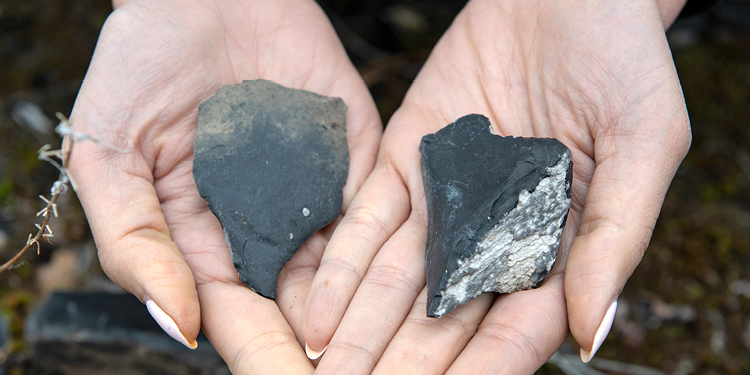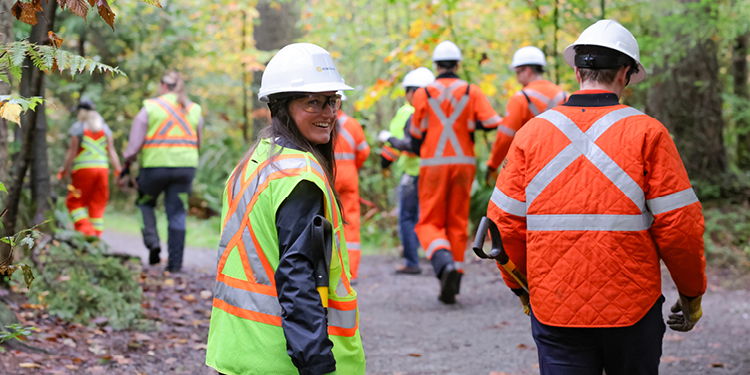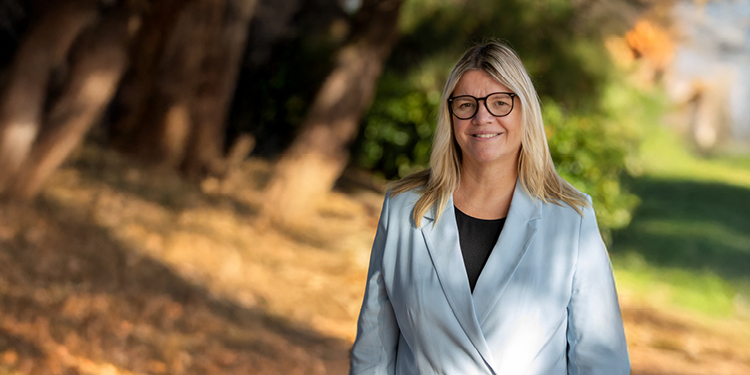Meet 6 incredible women transforming energy for a better BC
March 1, 2023
Updated April 10, 2025
In celebration of International Women’s Day—a global movement to forge gender equity—we sat down with some of the amazing women at FortisBC who are helping advance the future of energy for a better British Columbia. From electrical engineers to terrestrial biologists, there’s no shortage of talented women in FortisBC’s diverse workforce.
Let’s take a look at how these six women are helping advance B.C. to a brighter future.
What inspired you to join the energy sector?
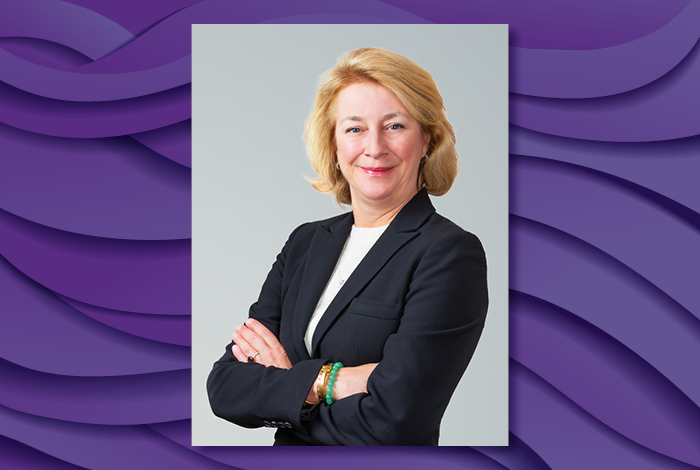 Sarah Smith, Director, Low Carbon Transportation and LNG Business Growth
Sarah Smith, Director, Low Carbon Transportation and LNG Business Growth
Growing up, my father was a mechanical engineer and worked with high-capacity compressors for natural gas. We lived in Kuwait and in Brussels before we were transferred to Calgary, and those experiences showed me the positives of life in the energy industry.
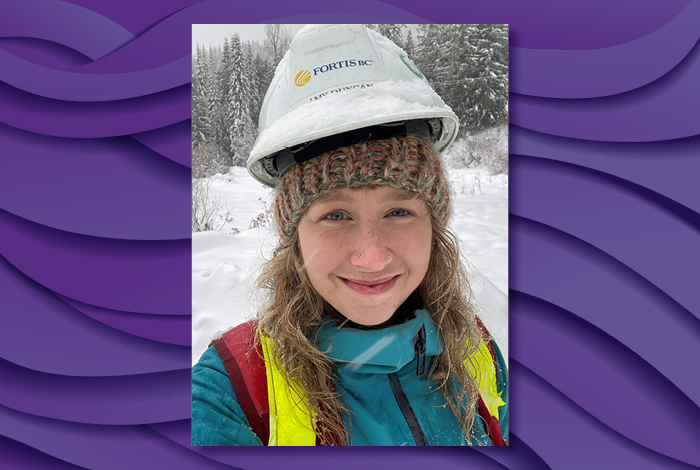 Amy Duncan, Terrestrial Biologist, Sustainability & Environment
Amy Duncan, Terrestrial Biologist, Sustainability & Environment
I’ve always been passionate about the environment and became involved in the energy sector to help mitigate the impacts of industry on the environment. Early in my career, I worked on a number of hydroelectric projects along the Columbia River which exposed me to the world of utilities. During that time, I also met some amazing people and built relationships that helped me land a permanent role in the industry.
 Dorothy Sidhu, Manager, People Development
Dorothy Sidhu, Manager, People Development
Before joining FortisBC around three years ago, I was working primarily in the financial services sector most of my career and I was looking for a new challenge. I’ve always been passionate and focused on learning, development and education and believe it’s possible to make a difference in someone’s career regardless of the industry. The concept of delivering energy to customers and getting to be a part of a larger movement to benefit British Columbians is very exciting.
Tell us about your career journey and how you ended up where you are today
 Anjuman Shahriar, Engineering Supervisor, Transmission Lines
Anjuman Shahriar, Engineering Supervisor, Transmission Lines
I joined FortisBC as a civil engineer of electric transmission lines. After a few years of hard work, I had the opportunity to move into a supervisor role. While it was an exciting opportunity, I questioned myself and whether I would be able to supervise a team of electrical engineers. But I accepted the challenge because I knew in order to be a good leader, I don’t need to solve all the problems by myself. Rather I need to understand my teams’ strengths and weaknesses and how I can best support them in our collective efforts. My hard work, willingness to accept challenges, and aptitude to accept feedback helped mold me into what I am today.
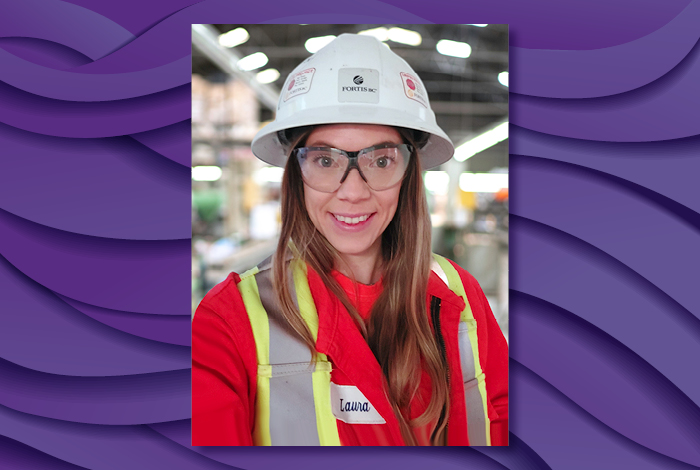 Laura Morgan, Senior Project Development Engineer, Operations
Laura Morgan, Senior Project Development Engineer, Operations
After gaining experience in the field, I saw that FortisBC was hiring an operations supervisor and knew that I had to push myself and go for it. I was successful and started the position as the first female operations supervisor in the area. I really enjoyed being in the field and working on construction projects and implementation. But last year I decided to make a full career shift, focusing on the front end of projects in development, answering the questions around project needs and alternatives. It’s been a great growth experience so far, and I am enjoying learning a new viewpoint of the business.
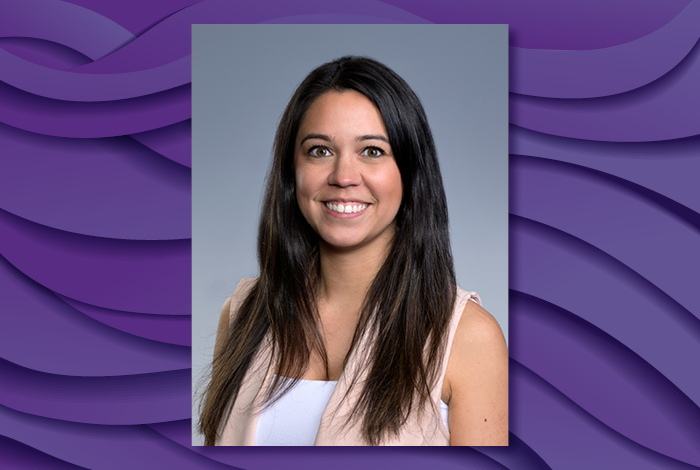 Stephanie Yen, Manager, Climate Action Partners
Stephanie Yen, Manager, Climate Action Partners
I started in an entry level position at FortisBC, then quickly moved into a construction operations support role. From there, I joined the energy solutions team where I worked in various sales and marketing roles for around ten years. While I loved working in marketing, during the pandemic I started thinking about what I can do to make more of an impact in the communities where our employees live and work. That’s when I decided to move into policy, and after around a year, I had the opportunity to move into the manager role for the Climate Action Partners program.
How has your business area grown?
Sarah: When I joined the energy efficiency team back in 2006, I brought my experience and knowledge in lobbying and government policy to help expand that side of the business. When energy conservation measures within the BC Energy Policy were announced, I presented the opportunity to my leader as a way to enhance the company’s reputation and establish a regulatory regime that would encourage the company to invest in reducing our customers’ energy consumption. With lots of collaboration, we were able to grow the Conservation and Energy Management program roughly ten-fold. Looking across the company today, and where some of our people who entered the company in the Conservation and Energy Management program are now, I feel very proud of how far we’ve come. I’ve also had good fortune to be involved in growing our Renewable Natural Gas, Low Carbon Transportation and LNG business areas, all of which have come with their own unique challenges and opportunities.
Anjuman: With more customers, along with aging infrastructure, our workload has increased significantly to ensure we can continue to provide the energy our electricity customers rely on. As a result, our team has also grown and we now have a team of four engineers in transmission lines. We’re always looking at innovative solutions to improve the quality of work. One recent example is the incorporation of drones besides our regular foot patrol during line assessments.
Stephanie: Our team is relatively small, but it’s the collaboration among departments that has contributed to our team’s success. I’m fortunate to work with many different organizations to develop and strengthen relationships, and also build partnerships that make an impact. Recognizing each community or organization is unique, it’s important to take a customized approach to find the best solutions to achieve their climate action goals, and this could look different with every partnership we have.
Not only have we grown in the way of numbers, but we have continued to grow in becoming more collaborative, diverse and inclusive.
Laura Morgan, senior project development engineer
What advice would you give to those looking to find their career path?
Dorothy: There’s always lots to learn and that doesn’t stop, but there’s no shortage of people who are willing to help and see you succeed. Your fluency in the gas and electric utilities will deepen over time, know that anything is possible if you are passionate about what you do and know your purpose.
Laura: It can be nerve-wracking entering into a traditionally male dominated area, but it’s so important to continue to encourage more women to join these areas and bring new perspectives. As women, we need to put our names forward and continue to challenge biases. Trust yourself and your skills. If at first you don’t succeed, learn from it, grow your skills and try again.
Anjuman: Engineering in the energy sector is an extremely rewarding career choice and I would like to see more and more women in engineering. As leaders in the energy sector, we can attract more engineers by sharing our stories and providing the necessary support and encouragement. Unfortunately, many women who earn engineering degrees either quit or never enter the profession. For them, I would like to say, please don’t leave before trying. There are lots of opportunities in this sector. Be open to challenges and work hard to learn.
Right now is one of the most exciting times to be a part of the industry. We’re undergoing a transition towards a lower carbon future and there’s so many opportunities to get involved. It’s exciting to be at the forefront of the transition as we move towards more renewable energy solutions for British Columbians.
Stephanie Yen, manager, Climate Action Partners
Tell us about someone that has supported you in your career journey
Amy: My manager has been my biggest supporter since day one. Initially I applied for an aquatic biologist role but wasn’t successful. Fortunately, she saw something in me, and we stayed in touch. When the terrestrial biologist role opened up, she encouraged me to apply. I was nervous that my experience wouldn’t be the right fit, but she believed in me and helped me see the bigger picture and how I could contribute to the success of our team.
Laura: I started working in the field quite young, so it took me some time to establish myself. I remember at times feeling inferior or like an imposter compared to my male counterparts during meetings. I was fortunate to find a group of supportive strong women at FortisBC who encouraged me to be confident and find my voice. I took part in a training course for communication for women, and with support from my colleagues, we were able to implement some new communication techniques. One tool that we used was the echo technique where my male colleagues would help reinforce the ideas that I brought forward. I appreciated the effort they made to create a sense of allyship among our team. In the end, I’ve found that everyone wants to support each other, and sometimes people need a little guidance in how they can best support you.
Anjuman: My colleagues are incredibly supportive, but one example that stands out was during my first site visit in the South Okanagan. I was scared because it was a bit of a hike to get up to the location, but the operations supervisor took the time to help me feel comfortable. He offered to help me move up the hill and even trained me to use some of the tools that I had never used before. He made me realize the importance of having a group of people with different strengths in a team—they were good at hiking and doing all the heavy work, but I was the only one who could solve the technical problem and provide the engineering solution. Knowing that I had support around me gave me the confidence I needed.
Mentors aren’t always who you would expect. I was lucky to meet one of my mentors, a leader in the company, early on in my career. I appreciate the culture he created among our team. If you had a good idea, he would back you up 100 per cent. If you had a challenge, you could go to him and he would help resolve it, not in an overbearing way, but rather he would work alongside you to come up with the best solution.
Sarah Smith, director, Low carbon transportation and business growth
The theme for International Women’s Day 2023 is #EmbraceEquity. What does embracing equity mean to you?
Sarah: As leaders, we have an important role to play in setting an example, but also in being vocal—about our goals, our ambitions and things we see and hear in the workplace. At the end of the day, business is people and people is business, and we really believe that our people are the energy behind our success.
Laura: It means being aware of our unconscious biases. It’s important to look at certain spaces that may be lacking in representation and find ways that we can make them more inclusive. There’s so much value in different perspectives, and by having more transparent conversations and opening up the dialogue, we move forward towards a better future for everyone.
Stephanie: We all have different ways of getting to where we are. I didn’t go the traditional route of going to school, getting a degree and then starting my career. It’s ok to be different and take your own journey. Work experience is so important, it’s something that’s helped me get to where I am today, moving through different roles and learning the business.
You can help transform energy for a better B.C. too
Recognizing that our people are the energy behind our success, we’re committed to an inclusive, diverse and equitable workforce. Ensuring opportunities for women at all levels of the organization, from positions in the field to senior leadership, is an important aspect of building that.
Thank you to Sarah, Dorothy, Amy, Laura, Anjuman and Stephanie for taking the time to tell us about your career journey at FortisBC, and for the tremendous work you do for our communities every day.
Are you looking to grow your career? We’ve got opportunities for growth in a multitude of career paths across the province. Find your next opportunity now.

